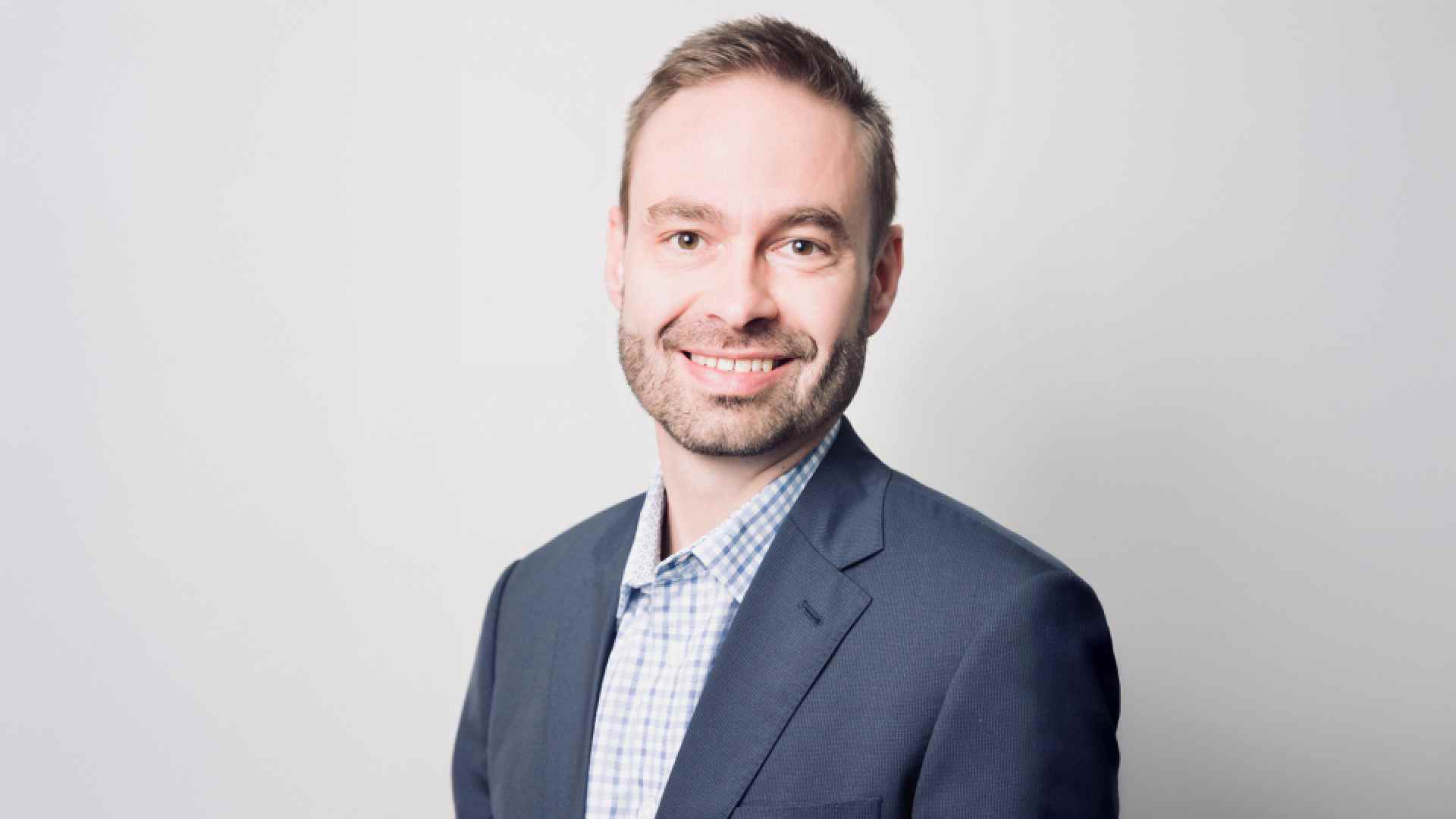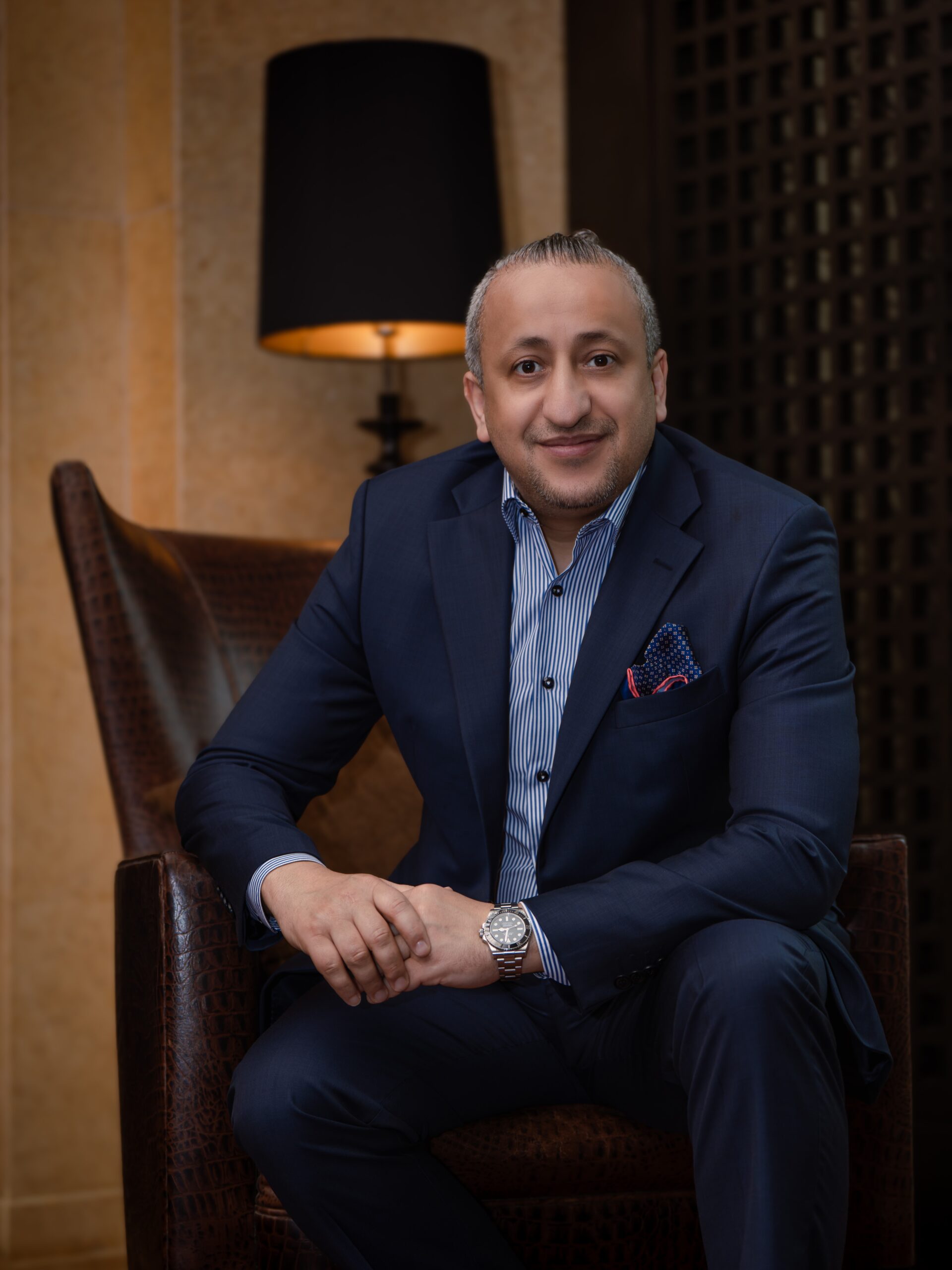Financial
Early Retirement Planning: Securing Your Future Lifestyle

By: Hamad Alnawyran – Head of Digital, at The Family Office International Investment Company
Retirement is often viewed as a distant milestone, something to think about later in life. However, the importance of early retirement planning cannot be overstated. Starting early not only helps ensure a comfortable and financially secure retirement but also plays a critical role in maintaining your desired lifestyle in your golden years. This article explores why it’s crucial to start planning and investing for retirement early, the key steps to take, how early investing impacts future lifestyle, common mistakes to avoid, and the role of financial advisors in this process.
The Importance of Early Retirement Planning
Starting early with retirement planning leverages the powerful effect of compounding. When you invest, the returns generated create additional earnings. Over time, these earnings themselves earn more returns, leading to exponential growth in your retirement savings. This compounding effect becomes more significant the earlier you begin, allowing even modest contributions to grow substantially over the years.
Beyond the mathematical advantages, early retirement planning helps in establishing disciplined financial habits. Regular saving, prudent spending, and smart investing become ingrained behaviors that not only boost your retirement fund but also enhance your overall financial health. Having a longer investment horizon means you can better handle market fluctuations and recover from downturns, ensuring the stability and growth of your retirement portfolio.
Key Steps in Retirement Planning
1- Assessing Your Retirement Goals: Begin by envisioning your retirement lifestyle. Consider where you want to live, your expected living expenses, and activities you plan to pursue. This clear picture helps in estimating the amount of money you will need to achieve your retirement goals.
2- Calculating Your Retirement Needs: Consult with a financial advisor to estimate the retirement income you need. Factor in inflation, healthcare costs, and life expectancy to get a comprehensive understanding of your financial requirements.
3- Diversifying Investments: Build a diversified investment portfolio that balances risk and return according to your age and risk tolerance. Include private market investments to enhance potential returns and mitigate the effect of market fluctuations.
4- Regularly Reviewing and Adjusting: Periodically review your retirement plan to ensure it remains aligned with your goals and financial situation. Adjust contributions, investment strategies, and goals as necessary to stay on track.
5- Seeking Professional Advice: Consider consulting a financial advisor for personalized advice and strategies tailored to your specific circumstances and goals. Their expertise can help optimize your retirement plan and investment strategies.
Impact of Early Investing on Maintaining Your Lifestyle
Early investing significantly impacts your ability to maintain your lifestyle in retirement by creating a strong financial cushion. The longer your money has to grow, the larger your nest egg will be, enabling you to cover essential expenses like housing, healthcare, and daily living costs without compromising your lifestyle.
A well-funded retirement account provides the financial freedom to enjoy spending on activities like travel, hobbies, and dining out. It also reduces the likelihood of financial stress or the need to make drastic lifestyle changes due to insufficient funds. Inflation can erode your purchasing power over time. A strong investment portfolio helps ensure that your retirement savings keep pace with inflation, preserving your purchasing power and lifestyle.
Common Mistakes in Early Retirement Planning
- • Underestimating Expenses: Many people underestimate how much they will need to maintain their lifestyle in retirement. To avoid this, create a detailed budget that accounts for all potential expenses, including healthcare, travel, and leisure activities.
- • Neglecting Healthcare Costs: Healthcare can be a significant expense in retirement. Failing to plan for these costs can strain your finances. Consider investing in long-term care insurance and ensuring you have adequate health coverage.
- • Investing Too Conservatively: While it’s important to protect your savings, being overly conservative can hinder growth. Balance your portfolio with a mix of assets that match your risk tolerance and time horizon to ensure long-term growth.
- • Ignoring Inflation: Inflation can significantly impact your retirement savings. Ensure your investment strategy accounts for inflation, possibly by including assets that historically outpace inflation, like private equity, private credit, and real estate.
- • Lack of Diversification: Failing to diversify your investments increases risk. Spread your investments across different asset classes and sectors to minimize risk and enhance potential returns.
The Role of Financial Advisors in Early Retirement Planning
A recent study by the Employee Benefit Research Institute found that individuals who work with a financial advisor are more likely to be confident about their retirement readiness. Financial advisors play a crucial role in early retirement planning by helping define clear retirement goals and creating detailed plans to achieve them. They devise the best strategies to reach your targets. By developing and managing a diversified investment portfolio that aligns with your risk tolerance, time horizon, and financial goals, advisors ensure ongoing portfolio management, including rebalancing and necessary adjustments.
Risk management is another critical area where advisors provide support by identifying potential risks to your retirement plan and suggesting ways to mitigate them. Regular reviews and adjustments are also essential components of their service. A good advisor will consistently review your financial plan and investment portfolio to ensure they remain aligned with your evolving goals and circumstances, offering adjustments and recommendations based on market changes and personal life events.
The Family Office is a good example for a leading wealth management company in the GCC, aiming to preserve and grow the wealth of individuals and their families to secure their financial future and maintain their lifestyle. By crafting tailor-made financial plans, the firm assists clients in protecting and building their wealth through diversified high-quality investments, ranging from private equity to real estate, technology, and healthcare. The bespoke services include wealth management, asset management, building diversified portfolios and retirement planning.
Conclusion
Early retirement planning is essential for maintaining your desired lifestyle in retirement. By starting early, you can take advantage of the effects of compounding and establish good financial habits. Key steps include assessing your retirement goals, calculating your needs, establishing a savings plan, diversifying investments, and regularly reviewing your plan. Avoid common mistakes like underestimating expenses and neglecting healthcare costs. Consider seeking professional advice from a financial advisor to optimize your retirement strategy. With careful planning and early action, you can ensure a secure and fulfilling retirement.
Financial
UAE MOVES TOWARDS A MORE COMPLIANCE-FOCUSED TAX LANDSCAPE WITH RECENT VAT REFORMS: DHRUVA

Dhruva, a premier tax advisory firm with deep expertise across the Middle East, India, and Asia, stated that the UAE’s latest amendments to the VAT Law and the Tax Procedures Law, issued by the Federal Tax Authority (FTA) which are effective from 1 January 2026, represent a significant shift toward a more structured, and risk-focused tax environment. These amendments are expected to reinforce responsible compliance behaviors and reduce administrative friction for UAE businesses.
Dhruva noted that one of the most practical and welcoming changes is that it eliminates the requirement for taxpayers to self-issue tax invoices for imports subject to the reverse charge mechanism, which provides a lot of ease to businesses. Post series of amendments and clarifications issued by the FTA in 2025 in relation to self-issuance of tax invoices for imports, while a general exception was granted for such requirement for import of services, the same were required in case of import of goods for record-keeping purposes. This often-added administrative complexity without impacting the actual tax liability or input tax entitlement. Under the updated rules, taxable businesses have removed the obligation entirely, and hence, businesses will only need to maintain standard supporting documentation, such as invoices, contracts, and transaction records.
However, the firm highlighted that while some administrative burdens are being eased, compliance expectations are tightening elsewhere. One of the amendments gives the FTA authority to deny input tax recovery in cases linked to tax evasion – where a taxpayer knew or, critically, should have known, that a supply or its broader supply chain was connected to tax evasion. The law clarifies that taxpayers will be deemed to have been aware if they fail to verify the validity and integrity of the supply in accordance with procedures to be issued by the FTA.
Dhruva explained that historically, the responsibility to account for VAT rested primarily with the supplier, and recipients focused mainly on validating the tax invoice and meeting standard input-tax recovery conditions. In practice, however, the FTA has often linked a recipient’s input-tax eligibility to the supplier’s discharge of output VAT, denying recovery where gaps existed. The latest amendment now formally embeds this position in law, imposing additional due-diligence obligations on the recipient.
Ujjwal Pawra, Partner at Dhruva Consultants, commented, “This is a significant change. It is a clear message that the right to input tax recovery comes with the responsibility to validate the integrity of one’s suppliers and supply chain. Businesses must now demonstrate that they exercised practical, documented, and consistent due diligence. Clean invoices alone are no longer enough; what matters is a clean process.”
While the procedures and conditions are awaited, Dhruva advised that companies reassess onboarding procedures, supplier-vetting protocols, and documentation trails to ensure they align with the FTA’s expected standards.
Another material operational change is the introduction of a defined timeframe to act on credit balances. Under the amended framework, businesses will generally have up to five years from the end of the relevant tax period to request a refund of a credit balance or use that balance to settle tax liabilities, with targeted flexibility in specified cases where credits arise late in the cycle.
Transitional relief is also available for certain older credits around the changeover, which can help businesses address legacy positions in an orderly way. Dhruva said these changes reduce the risk of credits remaining unresolved on the balance sheet, improve cash flow planning, and encourage clearer internal ownership of refund positions.
Ujjwal further added, “The UAE has introduced a more robust operating framework for credit balances and refunds in line with international best practices. The message is simple: know your credits, map the deadlines, and file claims that are clear, complete, consistent, and easy to validate.”
Dhruva advised UAE businesses to act now with a finance-led approach. This starts with building a central credit-balance register by tax type and tax period, assigning an accountable owner, and tracking action dates so credits are either utilised or claimed in time. Businesses should also treat refund submissions as audit-ready files by preparing reconciliations, supporting documents, and a concise explanation of how the credit arose and why the amount is correct before submitting, rather than rebuilding the file after queries begin. In parallel, companies should prioritise older credit positions to assess whether they fall within the transitional relief window and avoid last-minute filings.
The firm also advised businesses to monitor any binding directions issued by the FTA and align their tax positions, documentation, and system settings accordingly to minimize interpretational differences and strengthen consistency over time.
Financial
The StashAway Story and the Future of Digital Investing

By Srijith KN, Senior Editor
Financial Integrator

StashAway’s journey began when Co-founder and CEO Michele Ferrario found himself frustrated and dissatisfied with the investment landscape marked by y high fees and a lack of transparency. By age 35, his corporate career had provided him with substantial savings — yet when he approached his banks to invest in a portfolio of ETFs, he was sold expensive products that didn’t fit his needs.
This frustration inspired him to create a platform that would simplify investing while providing access to sophisticated financial products. In July 2016, he, along with the other two co-founders, came together, and by July 2017, after navigating regulatory requirements, StashAway was launched in Singapore.
“Stash,” as the word suggests—meaning to store something safely for future use—perfectly reflected what he wanted to achieve for himself. Over the past nine years, that personal need has grown into a company of more than 200 professionals, operating across five regions through a single, centralized technology platform.
Today, StashAway stands out as a pioneer in digital wealth management. The company leverages technology and deep investment expertise to offer accessible, low-cost alternatives to traditional wealth management, with a particular focus on private markets. Its approach has resonated with clients and positions the firm to benefit from regional economic growth and an increasingly digitally savvy population.
In the UAE, StashAway operates from the DIFC and has extended its presence to Malaysia, Thailand, and Hong Kong, with a chief investment officer based in Hong Kong overseeing investment strategies.
Democratizing Access to Investments
The company’s core strategy revolves around democratizing access to sophisticated investments. Private markets, which historically deliver higher returns at lower volatility, are central to this approach. By making private market products for a fraction of traditional minimums, StashAway removes the barriers that have long prevented high-net-worth individuals from participating in this fast-growing asset class. The platform also emphasizes transparency, with fees typically 50–75% lower than competitors, avoiding the hidden charges common in conventional wealth management products.
In public markets, StashAway offers an ETF-based, globally diversified portfolio called General Investing. The General Investing portfolio uses a proprietary investment strategy called ERAA (Economic Regime Asset Allocation). They have recently launched Sharia Global Portfolios, offering the same approach in a Sharia-compliant format. These Flexible Portfolios allow customers full control to create their own allocations using ETFs—either by using an existing template or building a portfolio entirely from scratch.
Capitalizing on the UAE Market
The UAE market presents a unique opportunity for StashAway. The region is home to a digitally engaged population with significant underinvested wealth. While 81% of financial wealth in the UAE is investable, nearly half remains in cash, losing value to inflation. StashAway’s platform appeals to a diverse range of clients, from seasoned executives to younger retail investors, aligning perfectly with regional growth initiatives like Dubai 2033, which targets strong GDP growth and population expansion.

A Comprehensive, Client-Focused Approach
What sets StashAway apart is its comprehensive, client-focused approach. Its offerings include globally diversified portfolios, flexible build-your-own options, Sharia-compliant solutions, thematic strategies, and access to private equity, infrastructure, and private credit for accredited investors. The platform’s investment philosophy is long-term, balancing risk and reward according to individual goals, while its high service standards ensure responsive client engagement. And thus far I have been having a frictionless digital experience and went through a quick onboarding process. Client acquisition is primarily driven online, with dedicated advisors for high-net-worth clients under StashAway Reserve. Other users can engage through the app and are supported by StashAway’s responsive client experience team through email, phone call, or WhatsApp.
Shaping the Future of Digital Investing
As the UAE continues to attract global wealth, its wealth management landscape is becoming increasingly digital, with affluent investors seeking alternative investment opportunities. In an industry often criticized for opacity and complexity, StashAway is redefining investing by making it more transparent, accessible, and tailored to the modern investor. By combining advanced technology, strategic insight, and personalized solutions, the company is not just managing wealth—it is shaping the future of digital investing in the UAE and across the region.

_________________________________________________________
The Brief:
StashAway is a digital investment platform that was launched in 2017 to empower people to build and protect wealth in the long term. Offering simple, intelligent, and cost-effective investment and cash management solutions, StashAway has led the way in transforming the way people invest and grow wealth. Today, StashAway operates in five markets, Singapore, Malaysia, Hong Kong, the UAE, and Thailand, with billions of dollars in assets under management. The company was recognised by The World Economic Forum as a Technology Pioneer in 2020 and ranked among CNBC’s World’s Top Fintech Companies in 2023, 2024, and 2025.
Financial
5 SMART WAYS UAE TRAVELERS CAN PROTECT THEIR FINANCES THIS FESTIVE SEASON

By Hennie du Plessis, Senior Vice President, Payment Services, Middle East and Africa at IDEMIA Secure Transactions (IST)
The festive season is one of the busiest periods of the year for UAE travelers. From year end getaways and family visits, to overseas shopping and digital gifting, consumers increasingly rely on contactless cards and mobile wallets to make payments quickly and conveniently.
Beyond higher spending, the festive season also acts as a real stress test for digital payment ecosystems. Transaction volumes peak, payment environments become less familiar, and consumers move rapidly across borders. This combination of factors increases exposure to fraud if the right safeguards are not in place. As digital payments scale, security becomes a critical enabler of trust.
According to IDEMIA Secure Transactions’ latest Global Consumer Payment Survey, which included UAE respondents aged 18 to 71, more than 8 in ten consumers have already adopted digital cards with biometric features, while 92 percent express interest in numberless cards. These figures reflect a growing expectation for payment experiences that combine speed, simplicity, and security.
With contactless payments now accounting for 84 percent of face-to-face transactions in the UAE and mobile wallet usage surpassing 50 percent, the festive season is a critical moment for travelers to reassess how they protect their finances while on the move.
1. Avoid Public Wi-Fi for Payment Activity
Festive travel often means relying on airport or hotel Wi-Fi, but unsecured networks remain a common entry point for cybercriminals. Accessing banking apps or making purchases over public Wi-Fi can expose sensitive information at interception. Travelers should use mobile data or a trusted VPN when handling financial transactions. A few moments of convenience are never worth the risk of compromised financial data, especially during peak travel periods.
2. Use Secure Digital Payment Solutions
Not all payment tools offer the same level of protection. Today, tokenization has become a global industry standard for securing digital transactions, replacing sensitive card details with unique digital tokens that are useless if intercepted. Mobile wallets such as Apple Pay, Google Pay, and Samsung Pay already rely on this technology.
Beyond protecting data in transit, tokenization also limits exposure in the event of merchant-side data breaches, as real card numbers are never stored or shared. Tokens are typically device-specific and transaction-bound, adding an additional layer of protection even if credentials are compromised elsewhere.
IDEMIA Secure Transactions plays a key role in enabling tokenized payments at scale, supporting secure transactions across in-store, online and in-app environments through its EMVCo-certified Token Platform. Digital co-badged cards offer global compatibility without sacrificing local functionality. By ensuring that real card numbers are never shared, tokenization significantly reduces fraud risk while preserving a smooth user experience. In addition, digital wallets can be remotely suspended if a device is lost or stolen, offering travelers greater control and peace of mind while abroad.
3. Decline Dynamic Currency Conversion
While shopping abroad during the festive season, merchants often offer travelers the option to pay in AED. This practice, known as dynamic currency conversion, typically includes hidden markups and unfavorable exchange rates. Paying in the local currency allows banks to apply more transparent conversion rates, helping consumers avoid unnecessary costs. This simple choice can make a meaningful difference for frequent travelers and international shoppers alike.
Another possibility for travelers is to use the Tap to Phone technology provided by some banks and supported by IST. Instead of having to switch cards across borders, it enables the travelers to modify their card features, such as credit/debit options and the currency used for transactions, with a simple tap on a smartphone via their banking app. This simple habit can save money and ensure better financial clarity while greatly facilitating international card usage.
4. Enable Real Time Alerts and Card Controls
With spending increasing during the festive period, real time monitoring is essential. Many UAE banks and fintech platforms offer instant transaction alerts, spending limits and location-based restrictions that allow consumers to monitor activity as it happens.
Crucially, modern security no longer has to come at the expense of convenience. These tools enhance protection while maintaining the fast, frictionless payment experiences that consumers expect, particularly in a market where one-click and contactless payments are widely adopted. This aligns with consumer expectations, as 96 percent of UAE users prefer simplified one click payment experiences. Real time controls enhance security without adding friction.
5. Secure Devices Before You Travel
Smartphones now function as wallets, boarding passes and identity tools. Before travelling, users should update device software, enable biometric authentication and avoid storing sensitive information in unsecured apps. Travelers should also activate remote lock and wipe functionality, ensure cloud backups are enabled, and avoid carrying all payment methods on a single device. Keeping at least one physical card separate from the phone provides an important fallback. While digital wallets rely on encrypted token technology, 29 percent of surveyed users still express concerns about digital card security, and 43 percent do not fully understand how these tools work. Basic preparation can significantly reduce risk and soothe concerns.
As UAE card payments are expected to reach USD 150 billion this year, the festive season highlights the need for secure and user-friendly payment infrastructure. By adopting the right tools and habits, travelers can focus on celebrating rather than dealing with fraud.
For the payments industry, the challenge is clear: security must be built into every transaction in a way that protects users without disrupting their experience. When trust is embedded seamlessly, travelers are free to enjoy the moments that matter most, wherever their journey takes them.
-

 Tech News1 year ago
Tech News1 year agoDenodo Bolsters Executive Team by Hiring Christophe Culine as its Chief Revenue Officer
-

 VAR8 months ago
VAR8 months agoMicrosoft Launches New Surface Copilot+ PCs for Business
-

 Tech Interviews2 years ago
Tech Interviews2 years agoNavigating the Cybersecurity Landscape in Hybrid Work Environments
-

 Tech News5 months ago
Tech News5 months agoNothing Launches flagship Nothing Phone (3) and Headphone (1) in theme with the Iconic Museum of the Future in Dubai
-

 Tech News2 years ago
Tech News2 years agoBrighton College Abu Dhabi and Brighton College Al Ain Donate 954 IT Devices in Support of ‘Donate Your Own Device’ Campaign
-

 VAR1 year ago
VAR1 year agoSamsung Galaxy Z Fold6 vs Google Pixel 9 Pro Fold: Clash Of The Folding Phenoms
-

 Editorial1 year ago
Editorial1 year agoCelebrating UAE National Day: A Legacy of Leadership and Technological Innovation
-

 Cover Story10 months ago
Cover Story10 months agoUnifonic Leading the Future of AI-Driven Customer Engagement













